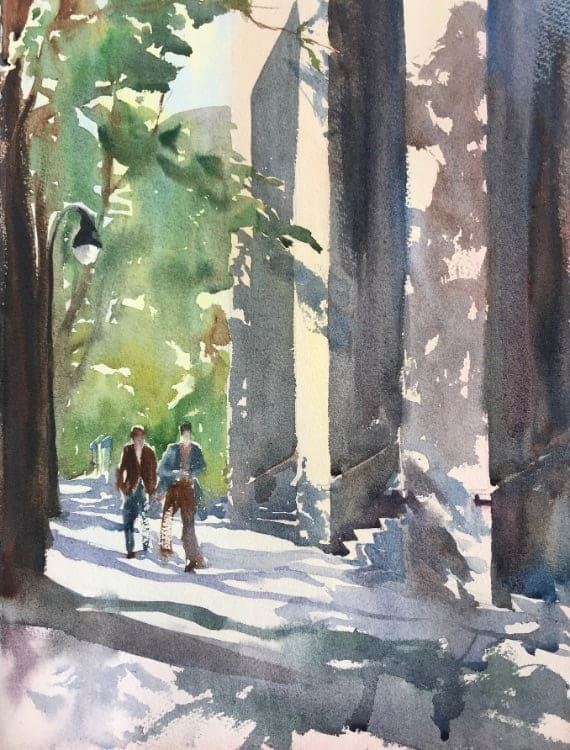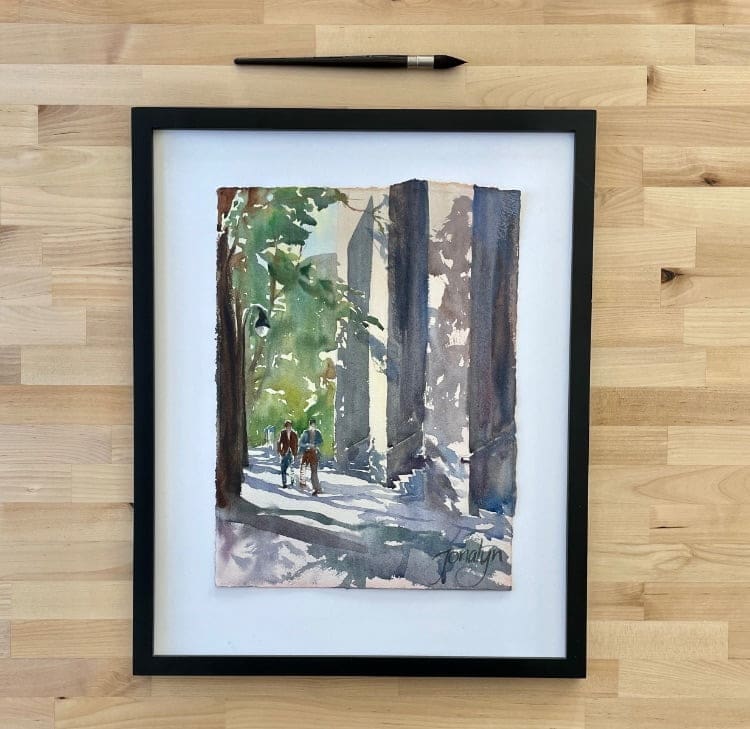When we enrolled our son in preschool, the teacher used to announce new people with “Look, a new friend!” It decreased stranger-danger anxiety, so I found myself doing the same with my oldest. A clump of construction workers became, “working friends,” and a group of library kids were, “Lego friends.”
My son quickly figured it out–the word meant different things based on context. Today, “friend” can mean the whole spectrum from stranger, co-worker, colleague, bestie, partner, spouse, or soulmate. No wonder we don’t really know what “friend” means anymore.
Last week, we talked about how a friend is a companion (Companions). Two weeks ago, we talked about how friendships need privacy to grow (Balloon Friends). This week, I want to share the oldest, truest definition of friendship that I’ve found.
In a nutshell:
A friend celebrates that you exist.
A friend is committed to helping you flourish as she is able.*
We can easily celebrate public figures without really knowing them. This celebration is not friendship. When we celebrate someone we know well, our delight in their existence means more. We celebrate friends because, not in spite of, knowing them. Friends inspire us, not by controlling or advising us, not by offering a life-coaching class, and not with acts of philanthropy. Friends inspire us by being themselves and letting us know them closely.
Last Thanksgiving, I met a songwriter in an hour-long line to buy my local turkey. This 70-year-old man brought so many honest observations about his artist’s life that, before long, I was taking notes, laughing with him, and drawing fresh inspiration to paint from my observations. Thank God that, of the hundreds in that line, he was appointed to stand by me. He wasn’t a friend. I probably won’t see him again, but I celebrate his existence. It was good that he was in the world. I am glad our timelines overlapped.
Friendship celebrates, but it takes the further step to be happily committed and vulnerable to this incredible person.** Friendships often leave us feeling like the lucky one. I got to be included in this group! I want to share with them; I want to listen to them. This lucky feeling should be mutual. I’ll be sharing more about that next month.
As I’ve been re-reading the Harry Potter books with my youngest, I’ve noticed how Harry and Ron’s friendship grows. In the opening scenes of their friendship, Harry is simply delighted he can share a pile of sweets on the train with someone, and Ron feels like he’s hit the jackpot, mountains of chocolate frogs on the Hogwarts Express and a friend who isn’t afraid to say “Voldemort.” Harry’s happy vulnerability to tell Ron anything he faces, top secret information for the rest of the world, proves his mutuality. Friends share just like Ron and Harry, not for power (like Percy Weasley) or fame (like Rita Skeeter). When Voldemort tries to ruin Ron and Harry’s friendship, he attacks the celebration and happy vulnerability between them. He accuses Harry, in Ron’s mind, of wanting to take Hermione’s love from him. He accuses Harry, in Ron’s mind, of lording his power and fame over him. In short, Voldemort attacks Ron’s belief that Harry brings good into the world.
Friendship means we celebrate that our friends live during our lifetime. Think of all the times our friends could have lived, but God brought them to us for this time. We want their company, we celebrate their success, and we are not interested in profiting from our connection. No wonder friendship is over-assumed; we all know the pleasure and goodness it can give. We all want friends that won’t turn away from us in hard times, but how many of us know how to celebrate and contribute to our friend’s flourishing? This will be our aim in the months to come!
The Friendship Posts
Expecting Better Friendships: Friendship Fountain, Sorting Friendships, Downsizing Friendships
What is a Friend: Balloon Friends, Companions, It is Good You Exist
The Pace of Friendship: Walk with Me, Return the Volley, Trains and Rollercoasters
Growing Friendships: Friends and Flowers, Growing a Friendship, Weeding a Friendship
Healing a Friendship: Forgiveness, The Work of Healing, The Crucial Question
* I am indebted to theologian and philosopher, Josef Pieper who put it like this “It is good that you are in this world. And, as far as I am able, I will contribute to your flourishing.”
**Thank you to Jason Lepojarvi, a colleague who offered this phrase “happy vulnerability” and an introduction to Pieper. For more see his essay “Companions in Shipwreck”: J. R. R. Tolkien’s Female Friendships.















2 Responses
Thanks for guiding us to the “Companions in Shipwreck” article about Tolkien. Fascinating!
I’m very happy to know you looked at this article. It’s a huge find for me, too. Over the years, Jason has invited me to speak on male-female friendships at his university class. So I was glad to learn more about his research on Tolkien’s female friendships!